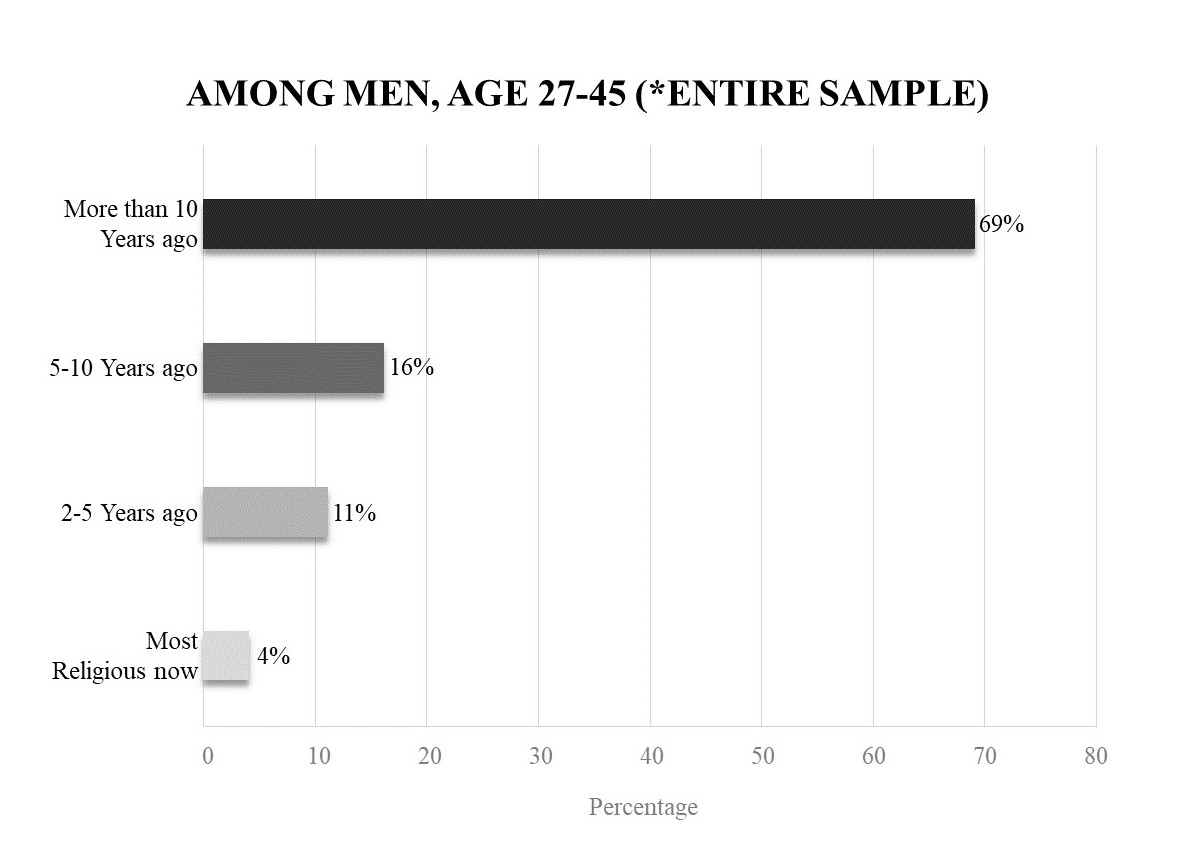Positive, transformative religious experiences touch our souls in such a way that we can never actually remove them. They become ingrained in us, forever a part of who we are. And no matter how far we run from them, they spiritually haunt us.

By Jeremy Schurke
Director of Mirror Labs
Man in the Mirror
Young men are increasingly becoming dechurched—far more than in previous generations. Most Christians are intuitively aware of this, but new studies are shedding light on their religious experiences, the state of their faith, feelings on church, cultural influences, and more.
In this Labs Report from Mirror Labs, the R&D division of Man in the Mirror, we are taking a look at a startling piece of data related to the religious experiences of young men.
A New Study
Ryan Burge, of The Dechurched Initiative, conducted a survey with just over 4,000 respondents. For the purposes of the study, the term “dechurched” was used to describe a respondent who at one time in their lives attended church at least once per month but now attends either “seldom” or “never.”
The goal was to better understand the external factors and personal reasons why people leave the church. In partnership with Burge, we sought to examine the data about young men specifically.
In one striking statistic, 96% of all young men (ages 27-45) reported that they are at least two years removed from their religious peak, with almost 70% saying they are 10 or more years removed.
Key Takeaways
The brutal reality here should give all of us pause:
Most young men—dechurched and churched—are at least a decade removed from the height of their religious experience.
This data suggests two main points—
1) Most young men are far removed from a transformative religious experience.
[click_to_tweet tweet=”Most young men are at least a decade removed from the height of their religious experience.” quote=”Most young men are at least a decade removed from the height of their religious experience.”]
Their once child-like faith has regressed into an adult memory.
When we enter independent adulthood, our responsibilities begin to compound, and often, that’s when our survival mechanisms kick in. Perhaps our main survival mechanism is our inclination toward self-sufficiency. The problem is, in our quest to be independent and self-sufficient, we turn away from God and others.
If we want to help young men experience a vibrant faith again, we must help them feel connected to God, to others, and to their sense of wonder and imagination.
2) Young men are in desperate need of religious intervention.
When we have had transformative religious experiences that now seem out of touch or lost altogether, we become spiritually haunted. These experiences touch our souls in such a way that we can never actually remove them—like skeletons in our spiritual closets. They become ingrained in us, forever a part of who we are, no matter how far we try to run from them.
[click_to_tweet tweet=”They need the Kingdom more than the latest cultural trends. They need a Savior more than an expert.” quote=”They need the Kingdom more than the latest cultural trends. They need a Savior more than an expert.”]
One of the most powerful and redemptive undertakings, then, is reconciling those ghosts of their distant religious past with the current presence of our living God—and the future hope of the Gospel of Jesus Christ.
Young men cannot do this alone, as none of us can. They need disruption. They need brave men willing to seek them out, sit with them, encourage them, and walk with them.
They need the people of the Church more than the worship services. They need the Kingdom more than the latest cultural trends. They need a Savior more than an expert.
THE BIG IDEA: Young men need someone to help them reconcile the ghosts of their distant religious pasts with the current presence of the living God.
They need religious intervention. Who is willing?
♦♦♦
[vc_widget_sidebar sidebar_id=”businesslounge-free-2″]







